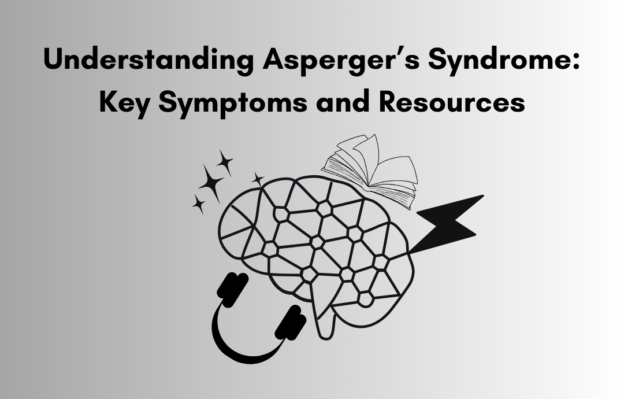A brief precis and overview of Asperger’s Syndrome (now subsumed in Autistic Spectrum Disorder, ASD).
Asperger’s Syndrome, often simply referred to as Asperger’s, is a developmental disorder that’s part of the autism spectrum. While each person with Asperger’s is unique, some common symptoms include:
- Social Challenges: Difficulty in understanding social cues, difficulty in forming and maintaining friendships, difficulty recognizing non-verbal communication cues, or a lack of interest in socializing.
- Repetitive Behaviors: Engaging in repeated motions (like hand-flapping) or becoming highly interested in specific, often non-mainstream topics, with a desire to discuss them at length.
- Speech and Language Peculiarities: Might speak in a monotone, formal manner or take figures of speech literally. They may also have a very literal interpretation of language and struggle with understanding sarcasm or jokes.
- Sensory Sensitivity: Over-sensitivity or under-sensitivity to sounds, lights, textures, and other sensory stimuli.
- Motor Skill Challenges: Clumsiness or awkwardness in coordination, sometimes with delays in motor skills like riding a bike or catching a ball.
- Rigid Thinking: Struggling with change and preferring routines. They might become distressed if routines are changed or interrupted.
- Limited Interests: They may develop an intense, almost obsessive interest in a few specific topics.
- Challenges in Empathy: Difficulty in understanding the feelings or perspectives of others, though this doesn’t mean they lack compassion or caring.
- Strong Skills or Talents: Many people with Asperger’s have high intelligence and may excel particularly in fields like math, science, art, or music.
- Avoidance of Eye Contact: They may find it uncomfortable to maintain eye contact with others.
It’s important to note that having one or more of these symptoms doesn’t necessarily mean someone has Asperger’s. A professional assessment is necessary to determine a diagnosis. Also, people with Asperger’s are as varied as any other group, so not everyone will display all these traits or experience them in the same way.
References and Sources
If you’re looking for in-depth and scholarly information on Asperger’s Syndrome, some reputable sources include:
- DSM-5: The Diagnostic and Statistical Manual of Mental Disorders (Fifth Edition) by the American Psychiatric Association.
- World Health Organization (WHO): The ICD-10 Classification of Mental and Behavioural Disorders.
- National Institute of Mental Health (NIMH): They provide a range of publications and resources on autism spectrum disorders.
- “NeuroTribes: The Legacy of Autism and the Future of Neurodiversity” by Steve Silberman: A comprehensive look into the history and spectrum of neurodiversity.
- Autism Speaks: This organization offers various resources, research, and understanding about autism, including Asperger’s Syndrome.
However, always consult with a clinician or specialist in the field for personalized and updated information.
